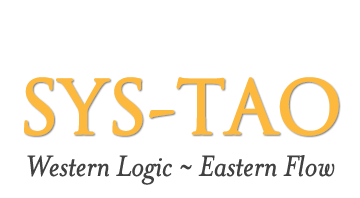A leader is best when people barely know that he exists, not so good when people obey and acclaim him, worst when they despise him. Fail to honor people. They fail to honor you. But of a good leader, who talks little, when his work is done, his aims fulfilled, they will all say, “We did it ourselves.”
–Lao Tzu
Bob Browne coined the term ‘Sys-Tao’ in 1992 as a metaphor to describe a more process-oriented culture that he envisioned for Great Plains Coca-Cola Bottling Company — a culture that Lao Tzu might endorse, but one that the more “traditional” western leaders might at first find difficult to understand .
At the time, Bob was looking for answers to questions he had for his company — questions common in western business:
- If something goes wrong, is it really somebody’s fault? Or is it more likely a problem with the process?
- Should we motivate people to do better work? Or should we focus more on improving the process? What motivates people? How can carrots and sticks improve a process?
- Should our primary focus be for the customer’s satisfaction and happiness, or for the financial success of the company and its shareholders? Can an undivided customer focus make us more money?
- If we try to describe our organization’s process flow in terms of a mechanistic system, doesn’t that leave out the value added by human relationships?
Sys-Tao represents the resolution of these questions in a duality of the familiar and the foreign.
The “Sys” in Sys-Tao represents “systems thinking” in accordance with our traditional western logic — organizational charts, analytic reasoning, and a command-and-control focus on results — which can be valuable, but quickly loses sight of the organic human relationships built into an organization, and the “living” nature of the system as a whole.
The “Tao,” on the other hand, represents the more fluid mindset of the eastern traditions — a focus on healthy relationships, more holistic interpretations, and respect for both the people and the process more so than the results. This is the element of leadership that drives fear and blame out of the workplace. It gives each employee an understanding of their own self-worth and their role in the process. It fosters trust among the people and in the process, and it creates joy in the workplace. And, oh by the way, it gets results.
Reconciling these seemingly disparate ideas requires people to change long-established habits, and it is dependent upon an organizational environment that will allow this transformation to thrive. Sys-Tao enables leaders to make the transformation — a transformation that is already emerging.

